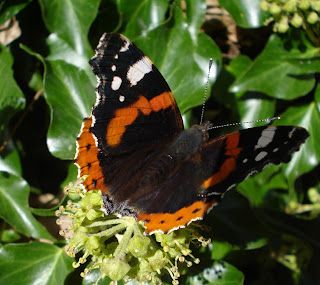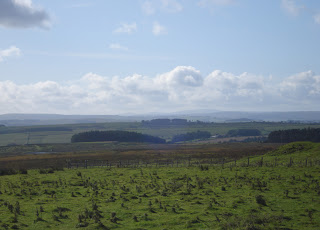
Harry Wharton strolled across the cobbles of the square and smiled at the farm girls who eyed him speculatively across the market stalls. Flirtatious matrons offered tempting morsels of honeycomb along with bawdy suggestions and Harry, grinning at their good-humoured audacity, shook his head at them all and kept his eyes open for a local man who could tell him the secret ways through the Border. The quicker he got to Edinburgh, the sooner he could accomplish the business, return and claim his reward.
How hard could it be?
First, he must find a guide. Getting lost in the boggy, trackless wastes was not the way he wished to start his mission.
The minty green scent of recently pulled cabbages and peas fresh in the pod fought the more earthy smells of livestock penned since early morning. From somewhere close at hand drifted the mouth-watering aroma of hot eel pie. Harry’s nostrils flared, his stomach rumbled and he fumbled for the purse at his belt.
“But Mama, we need more ale. There’s little left. Buy a keg or two, do!”
The clear feminine voice wavered between wheedle and command and did not belong to a farm girl. Harry turned, uttered a soundless whistle and forgot about eel pie.
A black velvet bonnet tilted rakishly to one side of her head. High cheekbones, a neat nose and open brown eyes in a clear complexion. Wisps and strands of chestnut hair tangled about her ears, and as she turned he glimpsed a thick, lustrous brown plait between her shoulder blades. The square-necked green gown hugged her waist, flared over the curve of her hip and a frill of white showed at the tight cuff of her plain, practical sleeves. The long tasselled tabs of an embroidered girdle hung from her waist.
She radiated energy and purpose. Something shifted under Harry’s diaphragm, which was odd because he considered himself well used to ladies of quality. Less than three weeks ago he had flirted with court beauties on a daily basis, even bedded one or two during his service in the duke’s household.
“Please, Mama. Why do you hesitate?” Pleasant toned and with a fluency lacking in the rough accents around him, her voice held Harry’s attention as she turned to the servant beside her. “Joseph will take it to the cart, won’t you, Joseph?”
Joseph, a stalwart man in his fifties, hastily nodded agreement. The young woman swung back to her parent. Joseph kept his gaze on the cobbles and looked as if he struggled to maintain a respectful expression.
Harry smiled. She stood out among the ill-dressed crowds in the market square as if a shaft of sunshine followed her every movement and he was willing to bet that life would never be dull with that young lady around.
“Very well, dear.” The older woman sighed and gave up the struggle. “Two kegs, Joseph, if you please.”
Joseph bowed his head and turned away to make the transaction.
Dark lashes shadowed fine eyes. Harry traced the swooping line of her brows, so clear against her pale skin. An unexpected tightness in his throat caused him swallow hard and look away.
“Now, Mama, what about needles and yarn for those quilts we are to make this winter?”
He turned back in time to see the young woman gesture towards the stall at his side, which offered hanks of wool, yarns and silk threads in an array of colours. His first inclination was to move out of the away. Nay, he thought, stay. An hour’s banter before riding on to Edinburgh may prove an entertainment to beguile a boring day.
The familiar pleasure of the chase surged through his veins. He pretended to study the goods on offer, allowed a frown to cloud his brow and stared at the display in what he hoped was an artful show of great perplexity. A flash of green fabric swirled against his booted leg and his senses, already sharp, tightened another notch as the scent of roses reached him.
“Why, sir, do you hesitate over needles?” The soft gurgle of laughter at his elbow made him lift his head. Her smile was like quicksilver. “Mama and I could help you make a selection if you find it beyond you.”
“Alina! Hold your tongue!” The sharp words drew Harry’s gaze to the girl’s mother, who frowned at him.
He bowed to them both, and kept his head down for several respectful moments. Alina. Alina. Harry savoured the name and decided he liked it.
“The gentleman obviously needs assistance, Mama.”
“The stall owner is present, daughter, and will offer all the assistance he needs.”
At the snapped rejoinder, Harry stood straight and tall once more, and noticed Alina tilted her head to meet his gaze. Her smile took his breath away.
“I, er…I thought to take a small gift home for my sister, but…”
Jesu! He could not frame the simplest sentence, and her laughing brown eyes mocked his efforts. He shook his head, defeated. “I know nothing of needles.”
“See, Mama.” The young woman half-turned to her annoyed parent. “He does need our help. I thought he might.” The sun sparkled on the vagabond curls tangled like gold wires about her ears.
Harry rallied his scattered wits. What was the matter with him? He cleared his throat to give himself time to think.
But she was too swift for him. “You still look puzzled, sir. They are only needles and pins, not something the Good Lord has dropped from the sky.”
Ye Gods! She spoke as if he were a simpleton. The skin of Harry’s face prickled and burned. It was years since he had blushed at something a woman said to him. He inhaled through his nose, ignored her and turned his attention to the older woman. “I would be most grateful for your help, ma’am. I must admit pins and spindles have not figured overmuch in my education.”
The mother had been a beauty in her time. The square-necked black velvet gown did nothing to lighten the sallow hue of her complexion and the severe gable hood, still popular among those who once supported Queen Catherine, did nothing to brighten her countenance. Still, Harry saw a likeness to her daughter in the eloquent brown eyes and the line of her jaw even though the good woman’s expression remained stern.
She turned a quelling glance on Alina, as if warning her daughter to remain silent. “I suggest, sir, a package of needles such as—” she indicated a small silk-wrapped bundle with a gloved hand—“would be welcome to most young ladies.”
Harry offered a second casual yet elegant bow. “Thank you, ma’am. I appreciate your advice.”
She inclined her head. A jewel at her throat caught the light and the gauzy stuff of the hood hid her neck as she turned to the stallholder.
“Use a ribbon, Mary, since it is to be a gift.” She cast a calculating eye over Harry’s dark woollen doublet and rakish cap. “I am sure the young man has coin enough.”
Harry bristled under her sharp scrutiny. His brows lifted, and a retort sprang to his lips, but he caught sight of Alina’s commiserating smile behind her mother’s shoulder and forgot what he had been about to say.
The stallholder, who had remained silent throughout the exchange, beamed and bobbed a small curtsy.
Alina’s mother continued to regard Harry with condescension, and then glanced towards the stallholder once more. “We shall return to make our selection later, Mary.” She directed a regal nod to Harry. “Good day, young man.”
She shepherded her daughter away. It was obvious she intended to return when he was out of the way. Harry gritted his teeth, offered his most elegant bow and watched them go. He received a swift glance over her shoulder from the younger lady before the crowd took her away.
He turned to the stallholder. “Who was that?”
Shrewd blue eyes regarded him. “Fancy ye chances, lad? That was the lady of Aydon Hall. Margery Carnaby and her daughter Alina. They’re a-carin’ for Sir Reynold, him that’s ill and like to die soon.”
“Aydon? Just north of here?”
“Aye. Right by the Ay Burn. Ye’ll be a stranger to these parts yourself, sir?”
Harry saw no need to deny it. “Travelling north to Edinburgh.”
“Oh, aye. And ye’d be from Lonnun, then, sir?”
Harry practised his famous smile. There was no harm in letting everyone think he was from the south. In fact, it was to his advantage. “How’d ye guess?”
The woman relaxed, as they all did when he concentrated on them. The heavy wool shawl draping her shoulders moved as she shrugged. “Ye don’t sound as if ye come from these parts. Ye sound more like gentry. I thought o’ Lonnun, that’s all.”
“It is quieter hereabouts than London.”
Mary handed him a neatly wrapped package and named her price. He counted out coins into her palm, aware she eyed him up and down. “Quiet, d’ye think, lad? It’s but a hundred miles to Edinburgh, and ye’ll travel some o’ the most dangerous land in the country to get there.”
Harry’s hands stopped moving, and his gaze rose from the coins to the woman’s rosy, thread-veined face and dark curls.
“Dangerous for everyone, or just for me?”
Mary choked back a laugh. “There’s outlaws and broken men up in’t hills, my bonny lad, and they’ll shake loose the Border whenever they take a fancy to dee it. They’ll not stop to ask ye name, never mind ye destination, before they slit ye throat and ride off wi’ ye purse.” She looked him up and down. “They’ll no’ forget ye sword nor ye dagger, either, nor that bonny jewel in your cap. Nekkid as a babe ye’ll be, when those limmers leave ye.”
He resumed counting out coins into her plump hand. “I’d best take care how I ride then,” he said. “For ride I will.”
Her blue eyes twinkled. “Luck be wi’ye, sir.”
The opening lines of Till the Day Go Down, available now from bookshops and online.
 The Turks Head in Barnard Castle - a typical market town pub. People in the States/Europe will no doubt think it very odd looking!
The Turks Head in Barnard Castle - a typical market town pub. People in the States/Europe will no doubt think it very odd looking! 


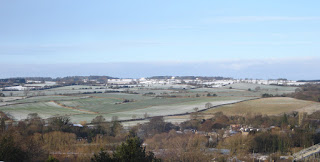

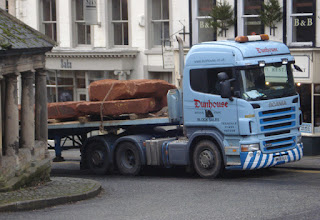
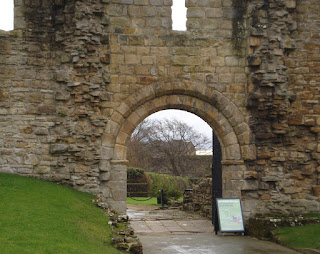


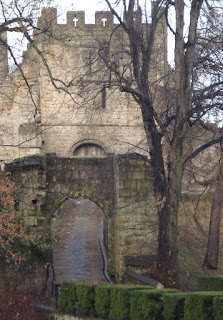
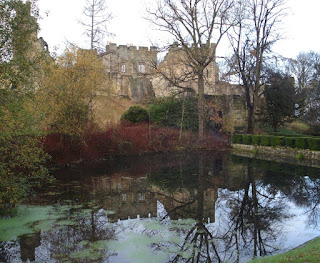



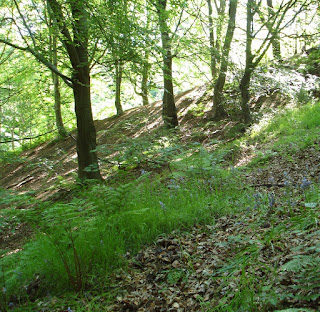


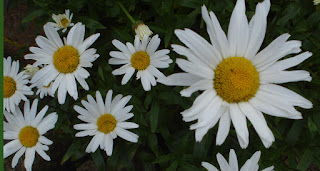

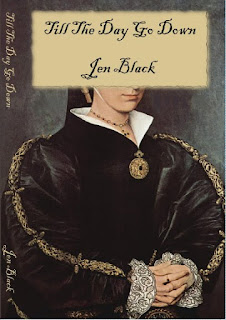

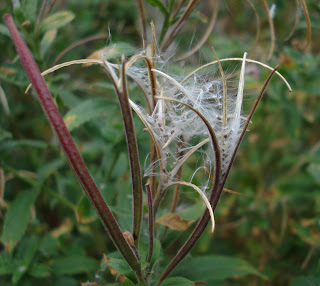


 my new book should appear on the shelves.
my new book should appear on the shelves. 


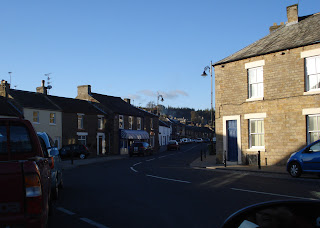






.jpg)
